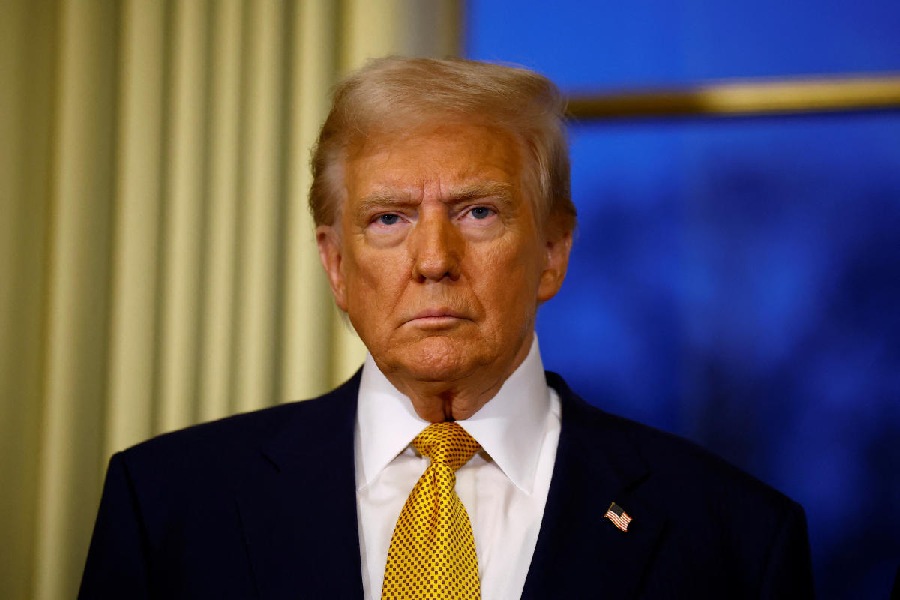The legal threats have arrived in various forms. One aired on CNN. Another came over the phone. More arrived in letters or emails.
All of them appeared aimed at intimidating news outlets and others who have criticized or questioned President-elect Donald J. Trump and his nominees to run the Pentagon and FBI.
The small flurry of threatened defamation lawsuits is the latest sign that the incoming Trump administration appears poised to do what it can to crack down on unfavourable media coverage. Before and after the election, Trump and his allies have discussed subpoenaing news organisations, prosecuting journalists and their sources, revoking networks’ broadcast licences and eliminating funding for public radio and television.
Actual or threatened libel lawsuits are another weapon at their disposal — and they are being deployed even before Trump moves back into the White House.
It is notoriously difficult for public figures like Trump to win defamation lawsuits. Under longstanding Supreme Court precedent — which Trump and some of his allies want to see weakened or overturned — plaintiffs must prove that a publisher knew a defamatory statement was false or acted with reckless disregard for its accuracy.
But that high bar has not stopped a wide range of politicians, business leaders and others from threatening or filing such suits — a strategy that often seems tailored to cause news outlets and individuals to rein in aggressive coverage of the public figures.
The strategy can pay other dividends as well.
On Saturday, ABC News said it had agreed to give $15 million to Trump’s future presidential foundation and museum to settle a defamation suit that Trump filed against the network and one of its anchors, George Stephanopoulos. Trump sued in March after Stephanopoulos inaccurately said the former President had been found “liable for rape” in a civil trial in New York, though the judge in the case later noted that the state has a narrow legal definition of rape. In fact, Trump had been found liable for sexual abuse.
The settlement followed months of attacks by Trump and his allies on ABC News, with the once and future President going so far as to say that the network should lose its federal broadcast license.
The deal set off criticism of ABC News by those who perceived the network as needlessly bowing down to Trump. And it led some legal and media experts to wonder whether the outcome would embolden Trump and others to intensify their assault on the media, at a moment when many news organizations are struggling with declining public trust.
Even before the settlement was reached, Elizabeth McNamara, a prominent media lawyer, said she expected that the trend “is only going to increase,” given the political environment.
“There’s been a pattern and practice for the past couple of years of using defamation litigation as a tactic to harass or test the boundary of case law,” said McNamara, who represented ABC News and Stephanopoulos but was speaking in general. (Her law firm, Davis Wright Tremaine, has also represented The New York Times.)
Over the past several weeks, lawyers for Trump and two of his most high-profile nominees — Pete Hegseth, the potential defence secretary, and Kash Patel, whom Trump has picked to run the FBI — warned journalists and others of defamation lawsuits for what they had said or written.
Hegseth, until recently a Fox News host, was accused of sexual assault in 2017. While he denies the allegation, he struck a confidential settlement with his accuser.
In an interview on CNN this month, Hegseth’s lawyer, Timothy Parlatore, said the woman was free to speak publicly. But, he warned, “If she repeats these false statements, then she will be subject to a defamation lawsuit.”
Parlatore, who previously represented Trump, said in an interview that he had delivered a similar warning directly to the accuser’s lawyer. “I suspect that she’s not going to come forward at all,” Parlatore said. “There’s no benefit. It’s all downside.”
Parlatore has also recently warned news outlets, including Vanity Fair and The New Yorker, that their planned articles about Hegseth’s past, including drinking and marital problems, could be defamatory, potentially exposing them to litigation, according to four people at the magazines and an email reviewed by The Times. Despite the warnings, both outlets published the articles.
New York Times News Service










